Tuesday 12th January 2016 –
“One point eight of you will not like riding horses.”
This was how Juan Manuel began his introduction to Estancia Panagea. We’d just arrived, having been transported from the bus station in Tacuarembo in the back of Juan’s truck, granting an open to the air breeze we were all grateful for. To be clear, at this moment, Juan was actually talking to the six members of the Intrepid tour. Melissa, her children, and myself were not included in this statistic. Maybe only one arm wouldn’t like riding horses.
Juan had many interesting and hilarious statistics like this. He would have liked us to be the perfect group, who did nothing wrong. Only this, he knew, wasn’t possible. Not nearly impossible. Definitely impossible. 100% of groups made stupid mistakes and did stupid things. It would just be a question of who, and what.
Some people would go for the ten minute fall, gradually sliding off the horse while remaining completely ignorant of the situation. Apparently, this often begins as an ill fated attempt to take pictures. Others would simply misdirect their horse, scattering sheep and cattle, or maybe start galloping – a definite no in gaucho life. Inevitably, someone would have a crisis, too. Juan stressed he could not deal with crises, however, and urged the Intrepid group to direct them to Pedro, who was obviously specifically trained in such things.
Anything and everything that could be done wrong, Juan has seen before. This, along with Juan’s humour, is evident all over the estancia.
Before long, Juan’s wife Susanne had brought us out some food. It’s a self service kind of deal at Panagea – you’re treated as part of the family, and while Susanna cooks all the food, a couple of volunteers are asked to help prepare everything, and you deal out your own food. This all serves to help you feel part of the ranch, and you eat the same sort of stuff that they would eat on any given day. After this, and some beer and wine, we slowly dropped off to bed. Come morning, adventure awaited.
We were to be ready by the horses for 8:30, which I was after eating the bacon and egg filled breakfast that I have been severely lacking these past months. Juan showed us how to saddle our horses in the traditional Gaucho style, and pointedly made sure everyone knew not to walk behind the horses, or to stroke a horse’s face while tightening its girth, lest we fancied risking losing some fingers. After a little help (and a few reminders to focus) from Juan and Balinga, a gaucho who works here, we were all ready, and set off into the fields. My horse was Saddam. He happened to be the biggest of the horses, and I took this as a sign of my already obvious incredible horsemanship.
Now, to put it in perspective, most of the time these jobs are done by Juan and Balinga alone. With all of us, we were 18. The Intrepid guys, Sophia, Tristan, Verena, Art, Amber, Vic and Pedro the guide, Melissa and her two children, Zane and Laith, Corinne, Martin and their son Uri, who had arrived the day before us, and Balinga, Juan, his daughters Dharma and April, and myself.
We rode over to one side of the field, before proceeding to herd some sheep into the corner. Some of them had infections, which needed treating and isolating. This required us to hold an evenly spaced line to prevent them escaping (not entirely successful) and not scare the sheep into running elsewhere (a point which the majority managed to listen to). Altogether, we got the job done pretty quickly, and soon sent back to get lunch. I was on fire making duty, a task full of responsibility, lest no one get any food. Thankfully, after a great lunch we were ready for siesta and the afternoon’s work.
We were rounding up sheep again, but this time a whole lot more of them. Juan has about 1800 sheep altogether, in addition to the 1100 cows and 74 horses on his 2400 acre farm. I couldn’t say how many we were herding this time, but it was a fair number. These sheep were located in a field further out from the house, so it took us awhile to get there, especially under the burning sun.
Once there though, we rode around the back of them, essentially scooping them up. With this many it was much easier for a gap to open up and sheep to evade us, especially as Juan didn’t babysit us all the way. As the odd group looked like they might drift off the pack, we would ride along the length to spur them on (like a real gaucho), only breaking into a trot when needed. For added effect, some of us brought out a few whooping noises and whistles. To sound like the real deal, right?
Without too many mishaps, the sheep were ushered from one field into another, closer field, ready for an adventure of their own the next day. Saddam had performed admirably, almost dictatorial in his approach with the sheep, but I would not get to ride him again – I would be on a different horse the next day. We retired to the house, chatting amongst ourselves, playing a bit of badminton and eating some much needed dinner again, along with some wine. Unsurprisingly, everyone went to bed somewhat earlier than previously.
I woke the next morning to find I was almost late – my alarm had failed to go off, and unfortunately with my deep sleeping, the birds had failed to do their job. Still, I managed to get some breakfast down me, and was ready to saddle my horse. I was given a grey this time, significantly smaller than Saddam, and I asked Juan what it’s name was. He turned to his daughters and consulted them, before turning back and replying “Lene, I think”. Apparently, having daughters means the horses can often wake up to find themselves with new names. Confusing all round I think.
Still unsure whether my horse was a boy or a girl (come to think of it, I really didn’t investigate whether Saddam was really a boy), we set off, and I quickly discovered my new horse had a different approach to Saddam. Whereas Saddam replied to the slightest touch of the reins, but took a bit more to persuade him to up the tempo, my grey would be off at the slightest touch, but was considerably more reluctant to slow. He particularly did not like staying in one position, favouring a fidgety dance while we were stopped. A change in thought was required on my part.
Swiftly, we brought the sheep we’d previously moved into the closer field into one of the pens by the farm. It almost went wrong when they scattered near our destination, but Balinga quickly retrieved the situation. We were proud though, and despite our mess up Juan said they could not have done it quicker without us! From there, it was deworming time.
Armed with deworming guns and blue chalk, our job was to separate the lambs from the mothers, the former identifiable as they had not been shorn, and give the lambs the deworming treatment. First of all, the sheep had to be ushered into the two pens we were working in using loud noises and so on. Standing in the direction they were meant to be going (and clapping) was not the idea.
Once shut in the pens, we had designated grabbers (including me – a job I excelled at if I say so myself) to identify lambs and present them to a dewormer, who would squirt the liquid into their mouths. After this, a chalker would be ready to colour the lamb’s head to indicate they had been done. They would then be sifted, all the lambs into one area and the ewes into another. A dozen rounds later, we were done.
The afternoon’s work was postponed till a little later than usual,as we went on a trip to a nearby creek. Before we left, Juan iterated many times that though the water was shallow at the start, it would get deeper than a man as we swam down it. In typical style, he drew an example on a chalkboard so everyone knew. Juan even brought a surfboard as buoyancy for anyone who needed it.
We slowly made our way down, struggling to keep our flip flops on as we slooped through the shallow water. Soon we realised it was easier to just drag ourselves along the ground, and as it grew deeper, everyone began to put their flip flops on their hands to avoid losing them. It was lovely as we just drifted down.
Terror struck though. It wasn’t an anaconda as I’d hoped, but Art, wearing his coat stuffed with belongings, started to struggle. It was a crisis – one of those that Juan had said he was not the man for – that Pedro was. Nevertheless, he was called into action, along with Pedro and several others. Art was fine, if a little shaken, and we were all near the exit point, so soon left. The possibility of Sofia, Tristan, Art, Verena, Amber and Vic being the perfect Intrepid group though, with no mistakes or problems, also left. Oops.
Ranchwork beckoned again soon after. We were off to fetch some cows for a wash. By now, we were managing these tasks quite smoothly, especially with so many of us, and brought them back to the farm, depositing them in a pen. They would go for “dipping”, and I, along with Martin and Art, was part of the “Devil’s pit”, where we used flags on sticks to prevent the calves going in with their mothers, as the calves might drown.
A messy affair altogether, in the muddy pit, with Balinga’s instruction they were sifted through, and only once did I get bounced by a cow. After the first round, we managed the rest even more smoothly. Meanwhile, the rest of our group were directing the cows through the cleaning channel.
The sun was setting by the time we were done, and after a lesson from Juan as to the different types of cattle farms (his is a meat farm which does the early rearing) we took them back to their original field. Some of the guys got stuck leaving the farm, their horses wanting to go back, but we got the cows back safely anyway. Only one cow was a nuisance, stubbornly standing in the middle of a big patch of bog, but after a few choice words from myself she quickly changed her stance. It seems English swearing transcends the boundaries of language and even species. We stripped our horses of riding gear upon our return, knowing it was our last time with them, and let them out into the field, rather sad to be parting. The next day was sunday, a day of rest for gauchos all around.
A few bottles of wine were cracked open that night, knowing we did not have to be up early the next morning, and come the next day a few people were a bit worse for wear. Pedro, as usual, was unavailable at such an early hour, and with the traumatic evening of hammock swinging and more he’d endured it was quite understandable. The day was spent talking with Susanne and Juan. About mate, about languages and whatever other wry jokes Juan had up his sleeve. We also ate plenty of barbecued sausage and some of the best salted beef ever. As expected though, the time to leave was soon upon us.
It was about two o’clock when we went – Juan taking us to Salto. The Intrepid guys would be off across the border to Argentina, on their way to Foz do Iguazu. I would be staying in Salto, before making my way south, to Colonia. It was a beautiful two hour drive, over moorland and past estancias, and it was absolutely gutting – I didn’t want to leave Panagea, or the family atmosphere there, and I was pretty devastated. It was good though – for a while I’d been stuck doing the same old things – the sadness I felt leaving here proved I’d just been doing something special.




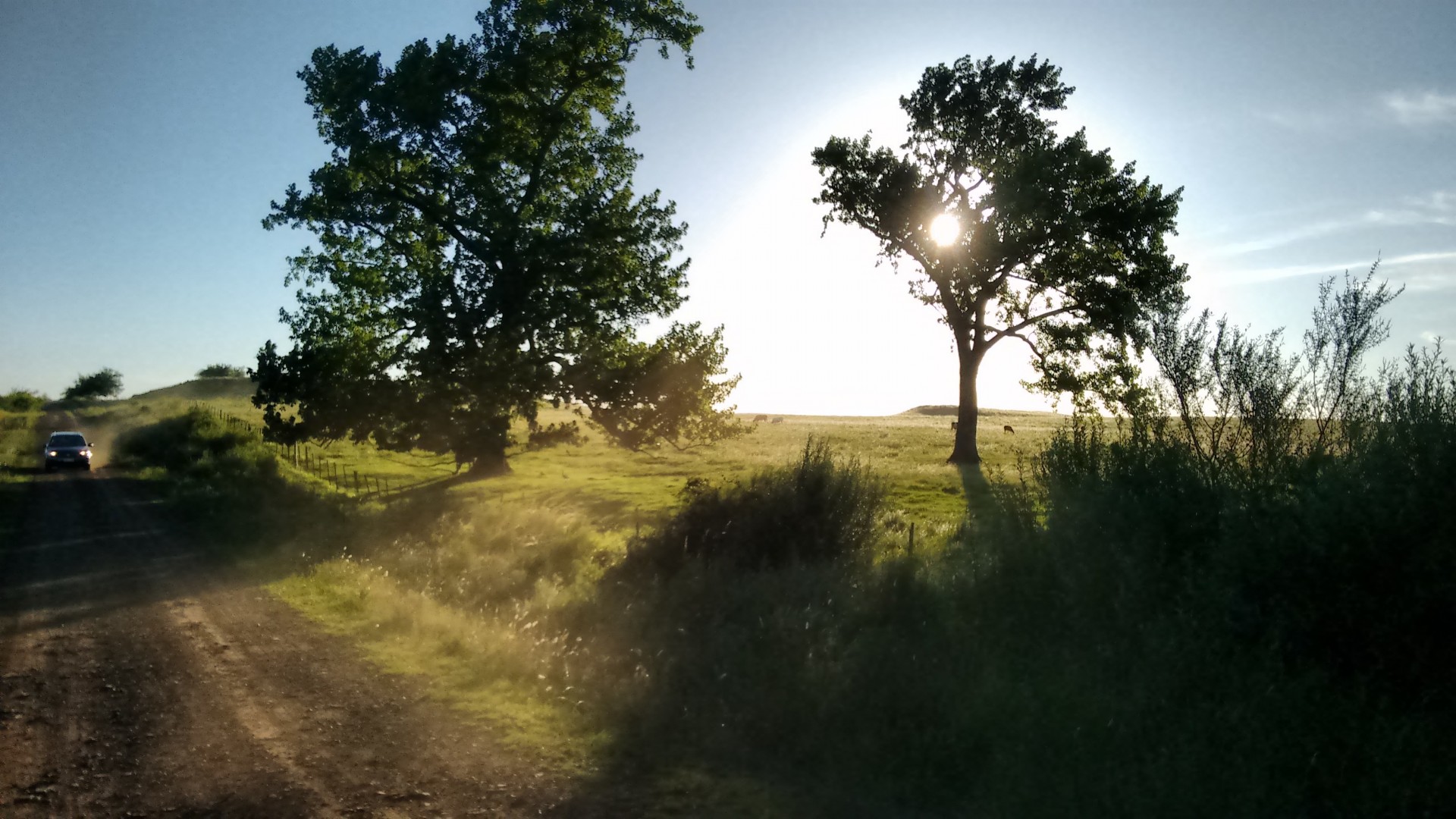
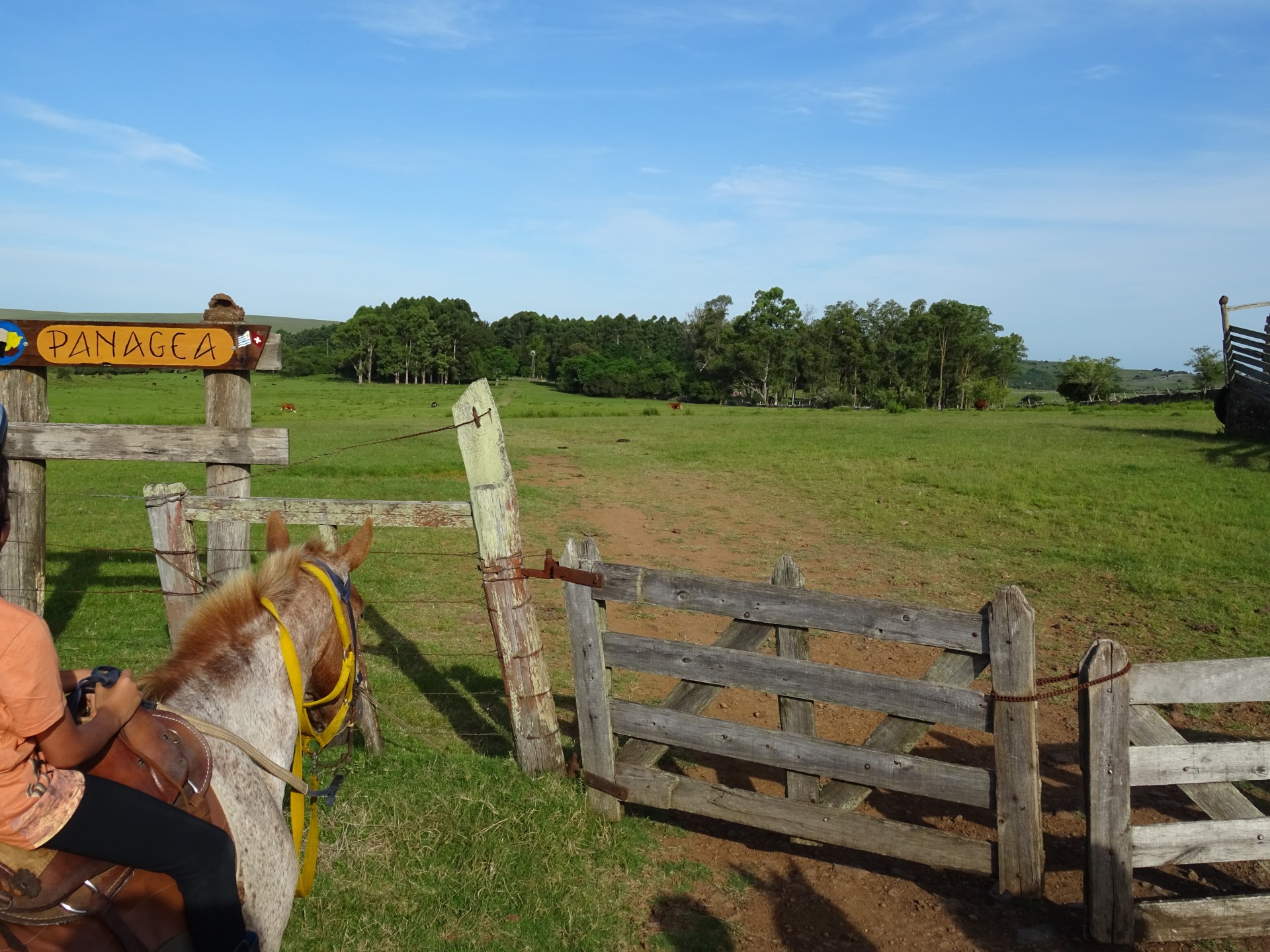

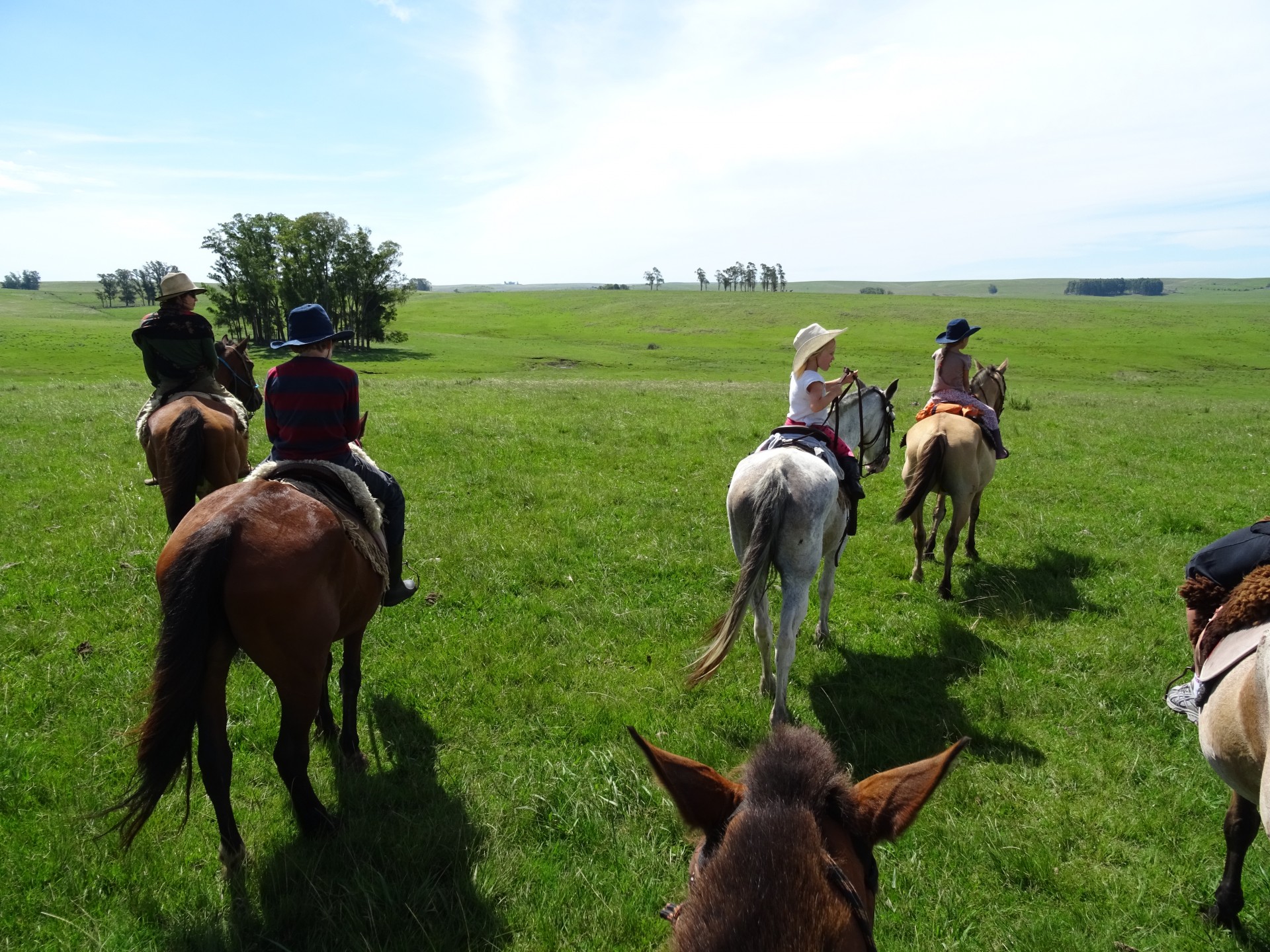





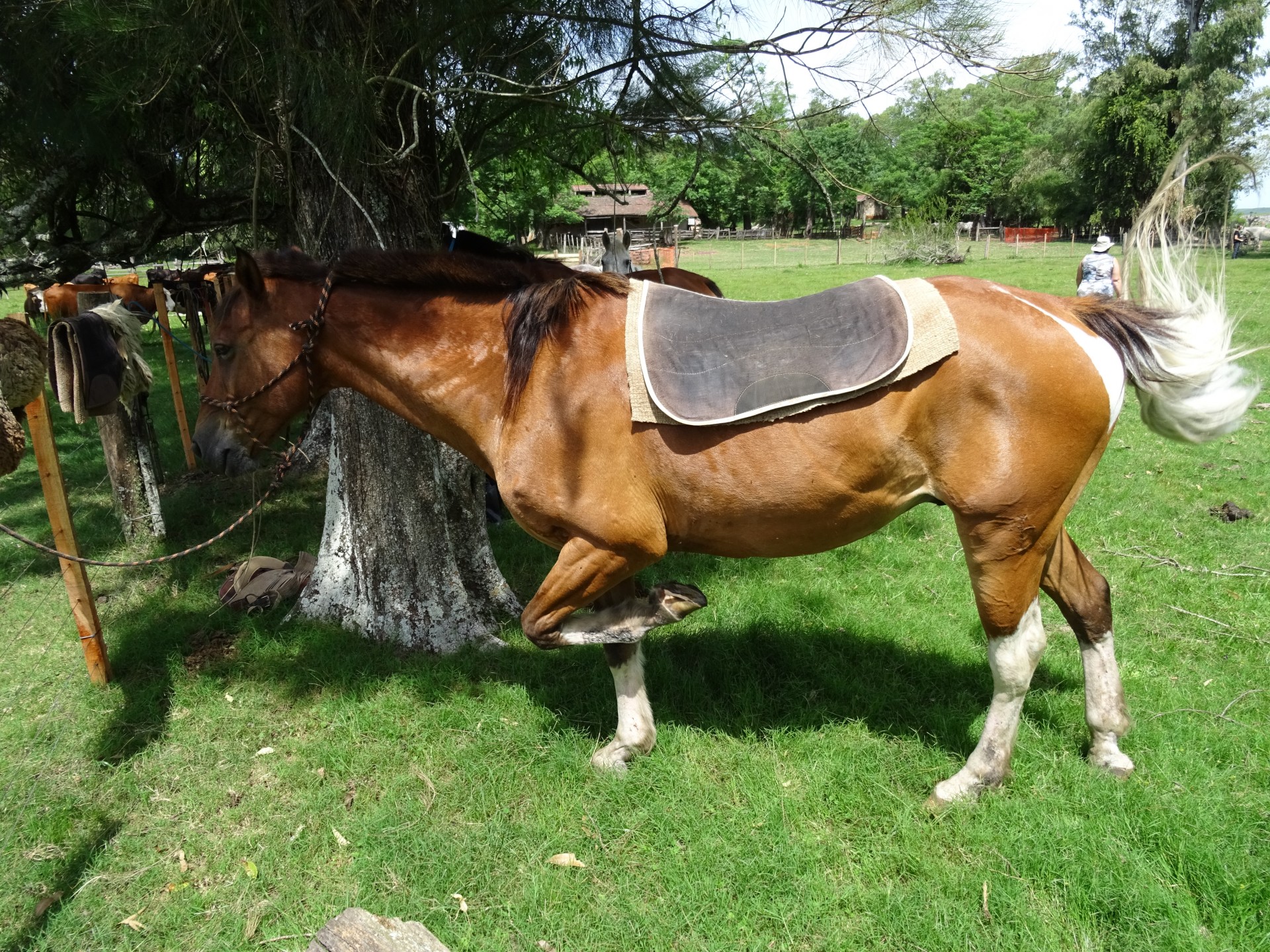
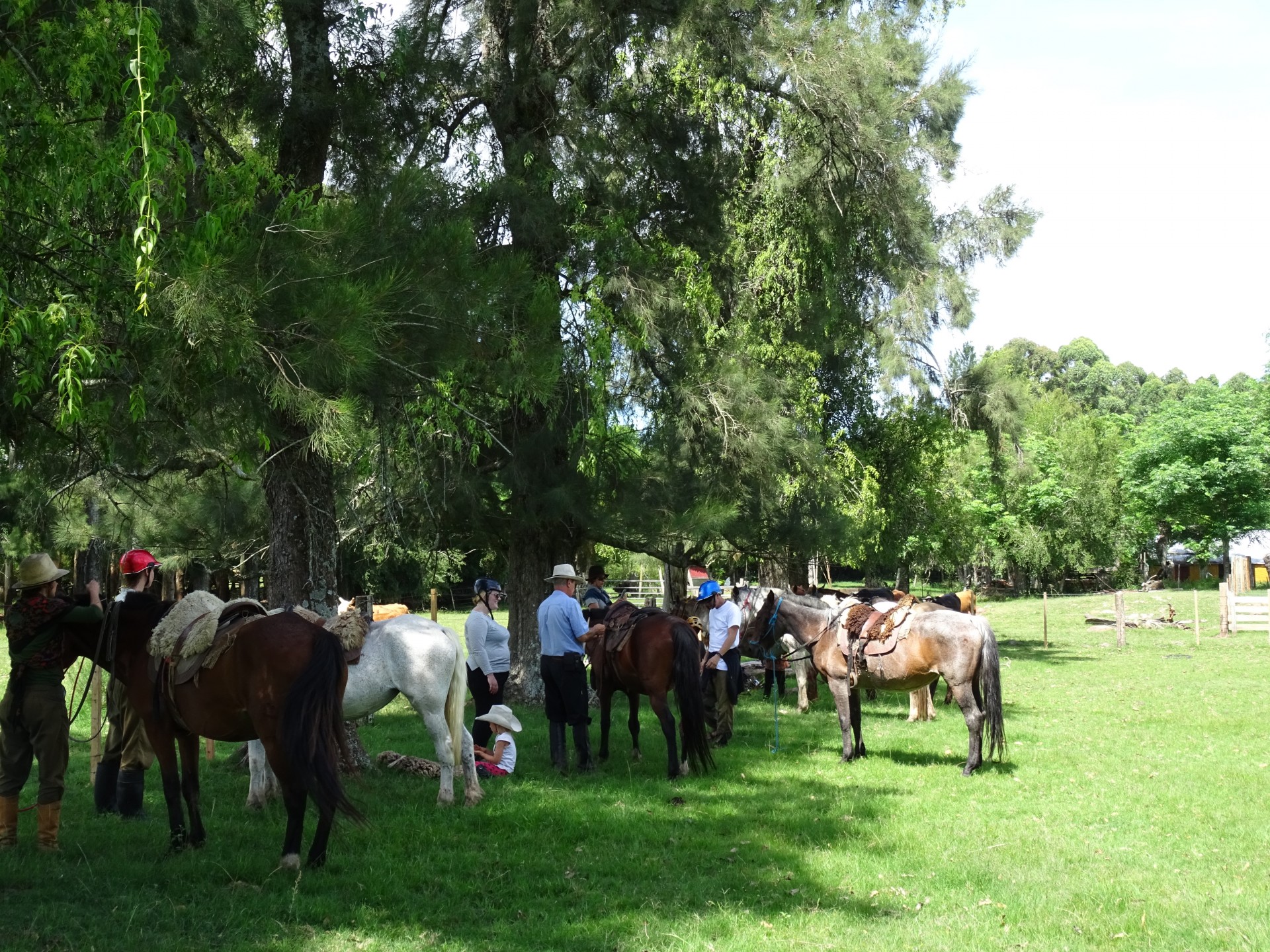
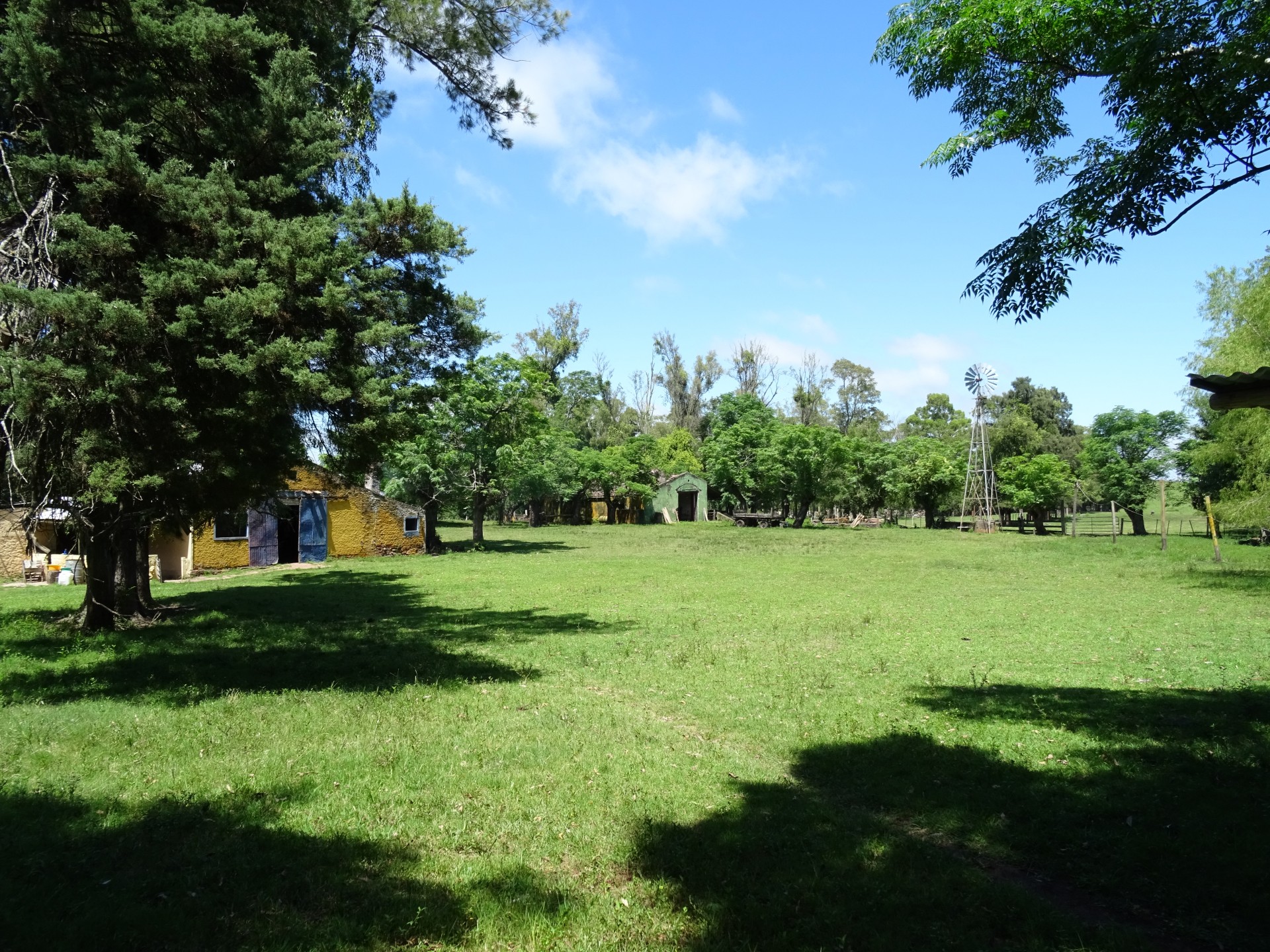
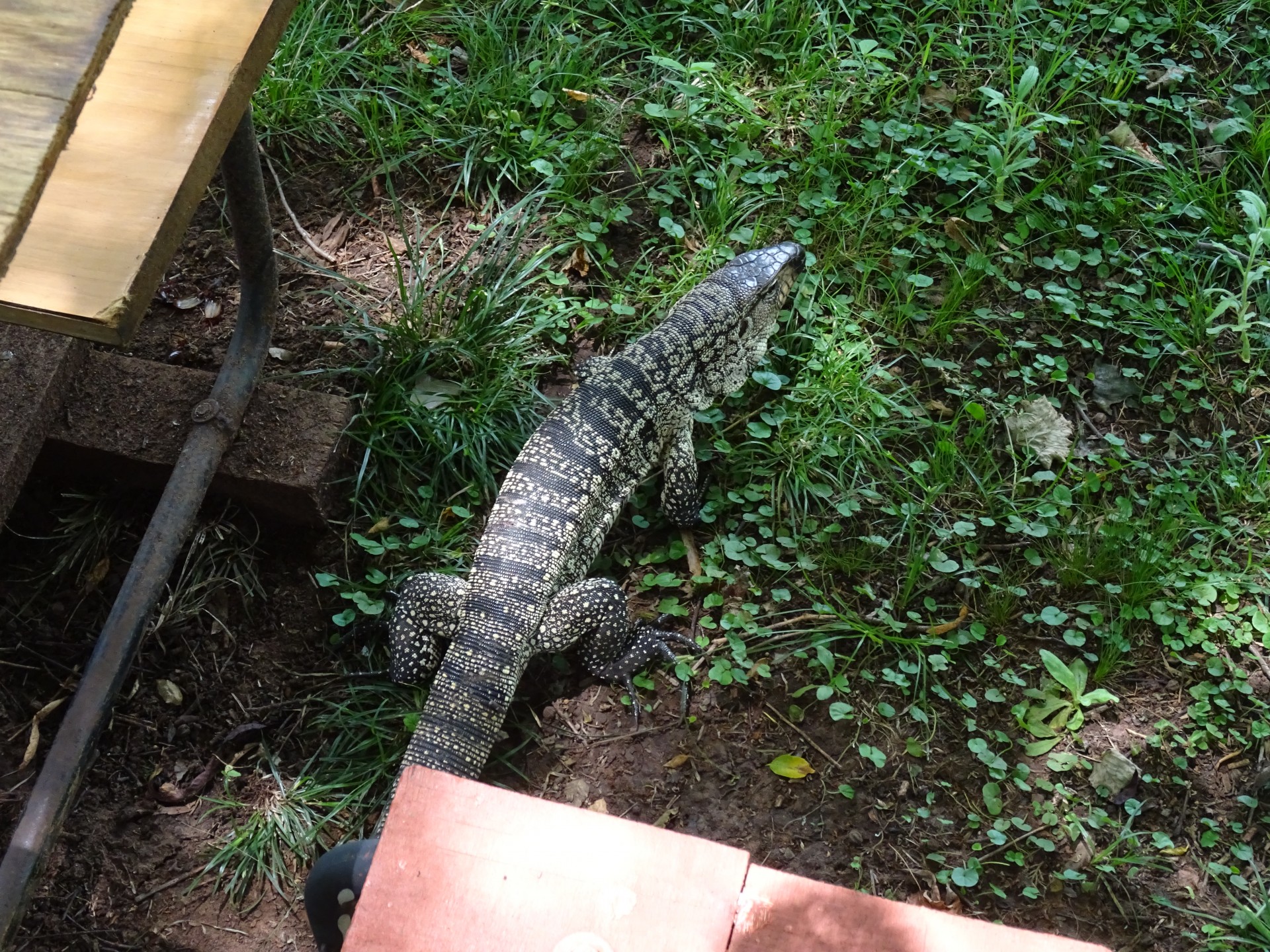
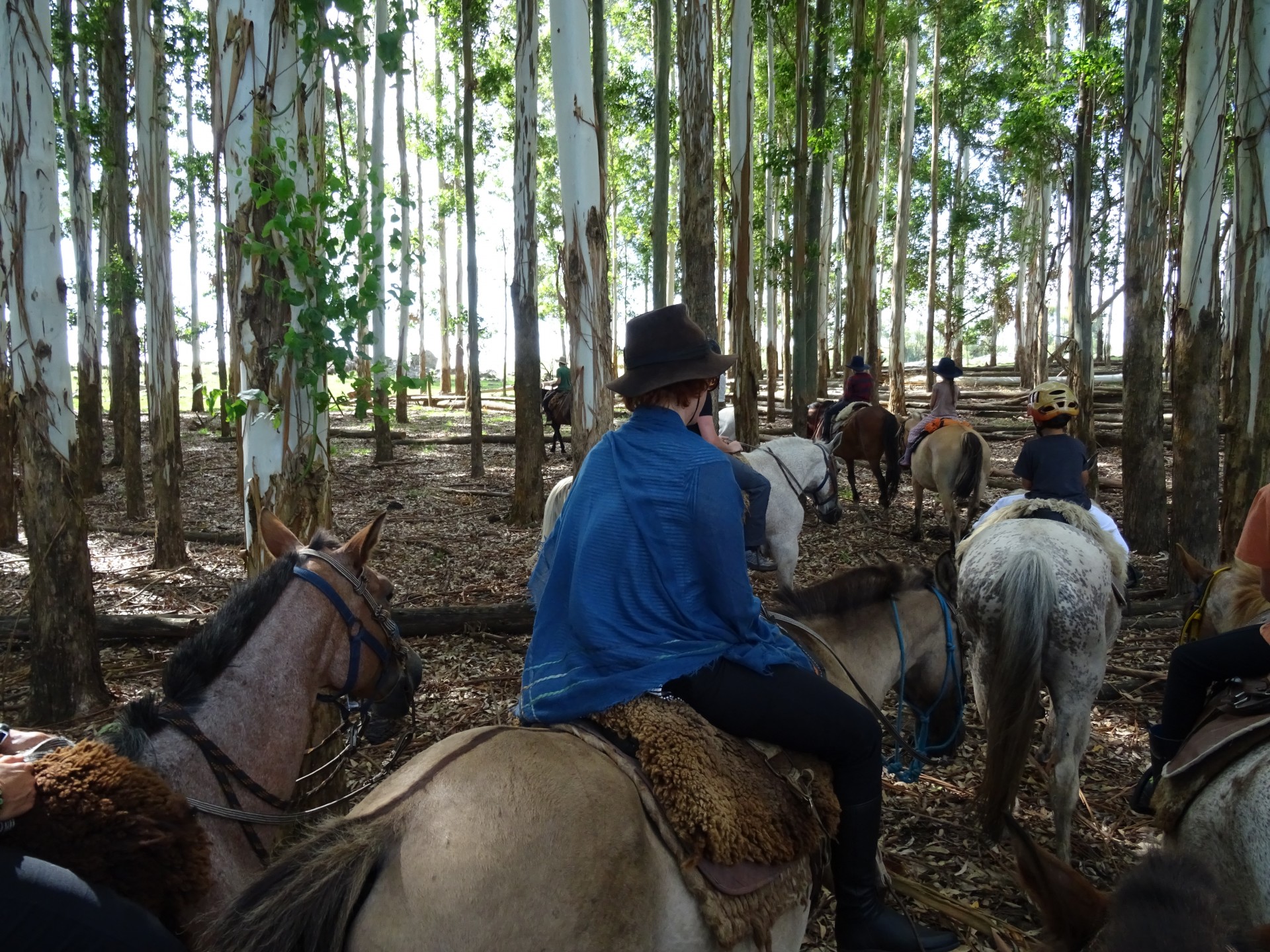
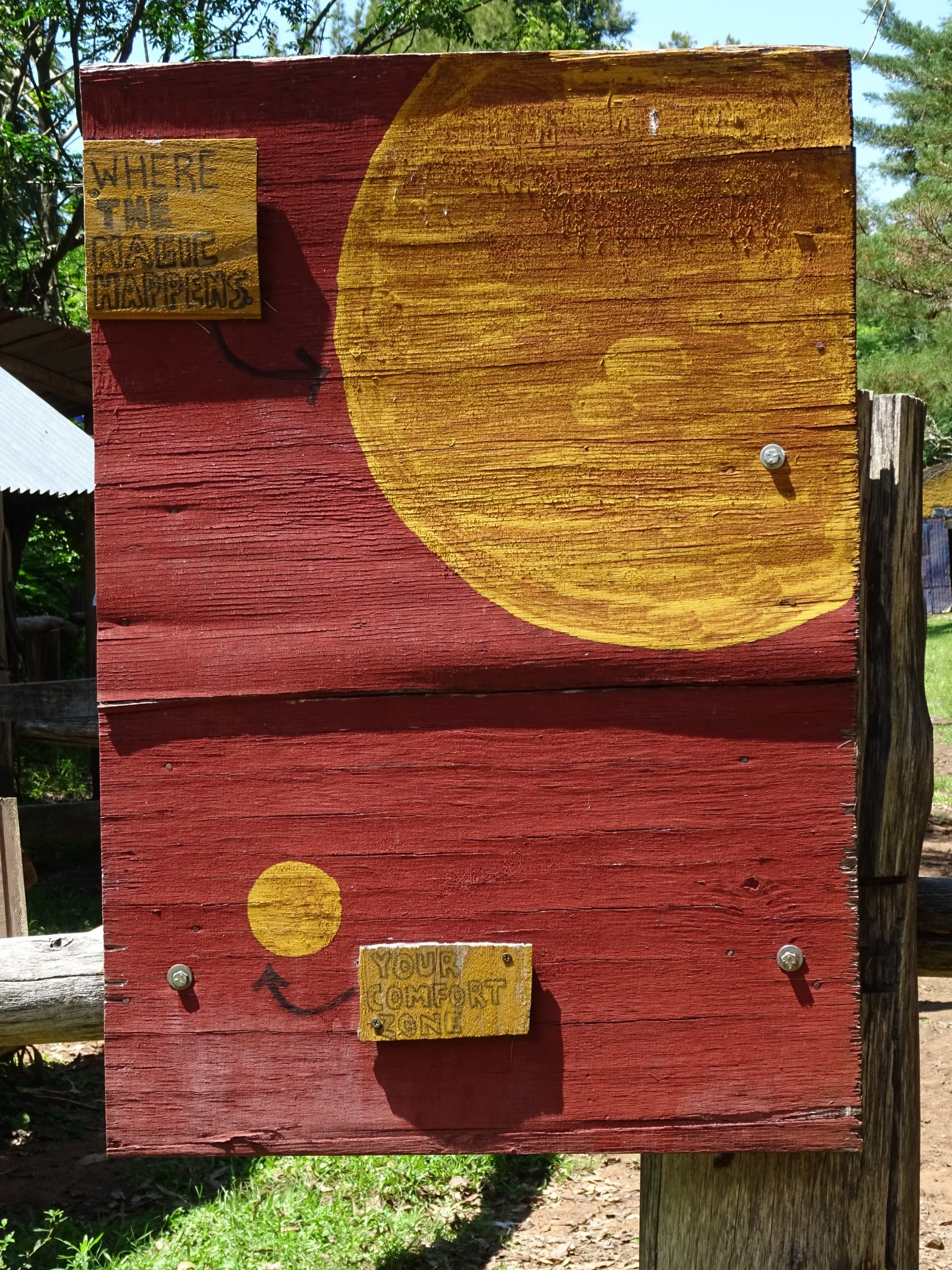

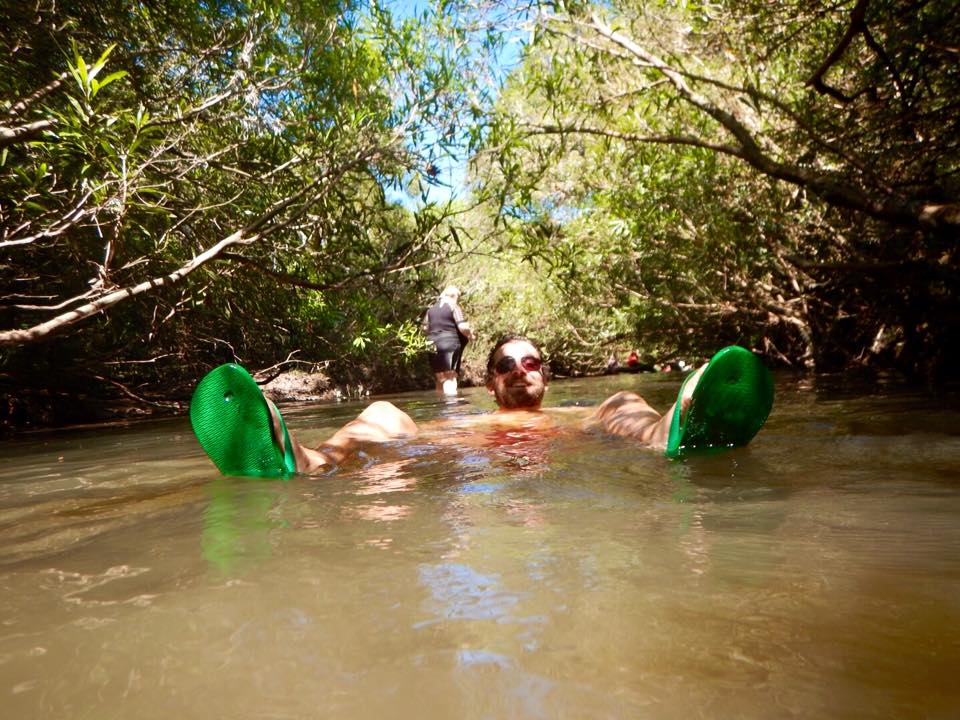

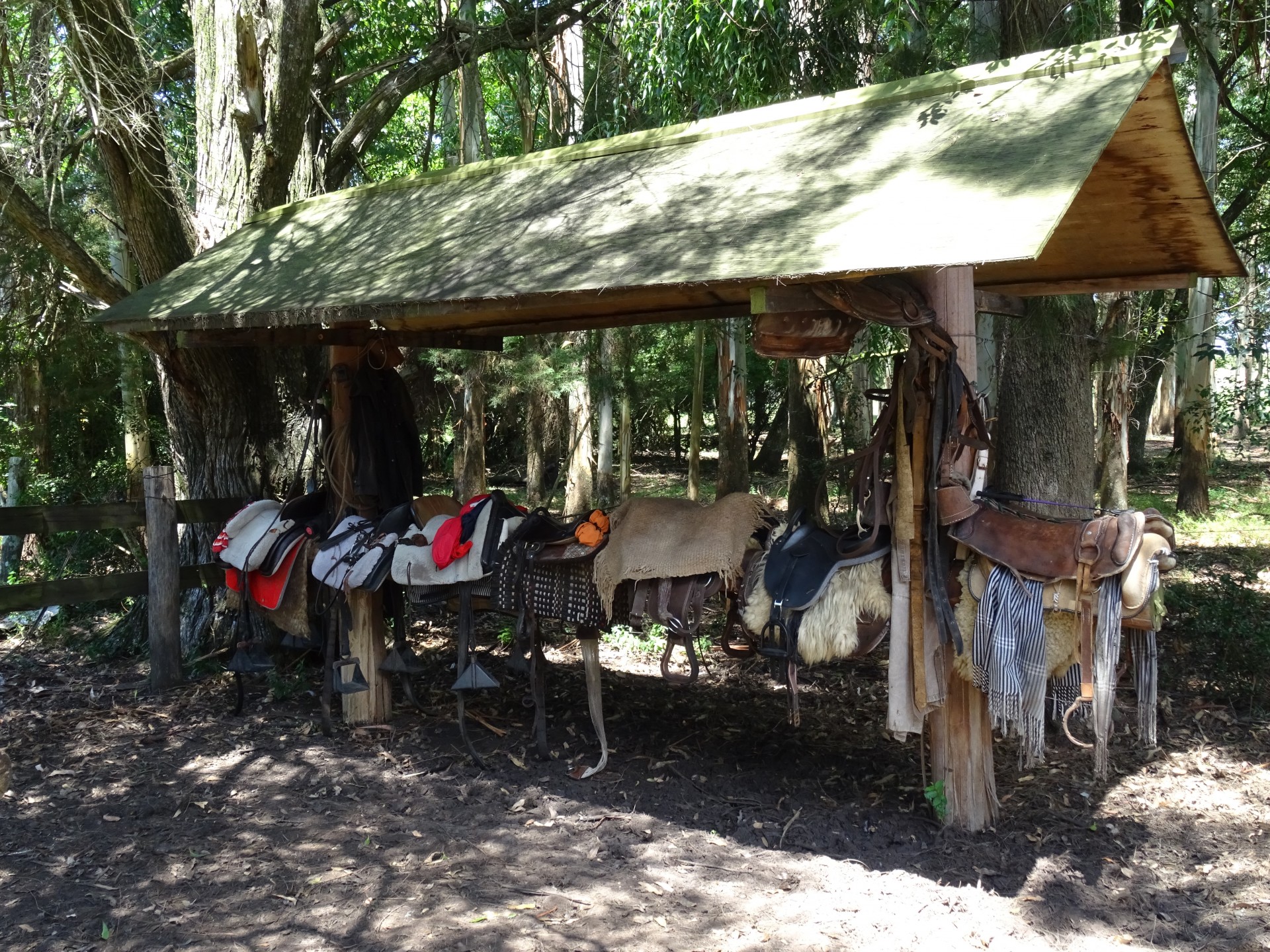

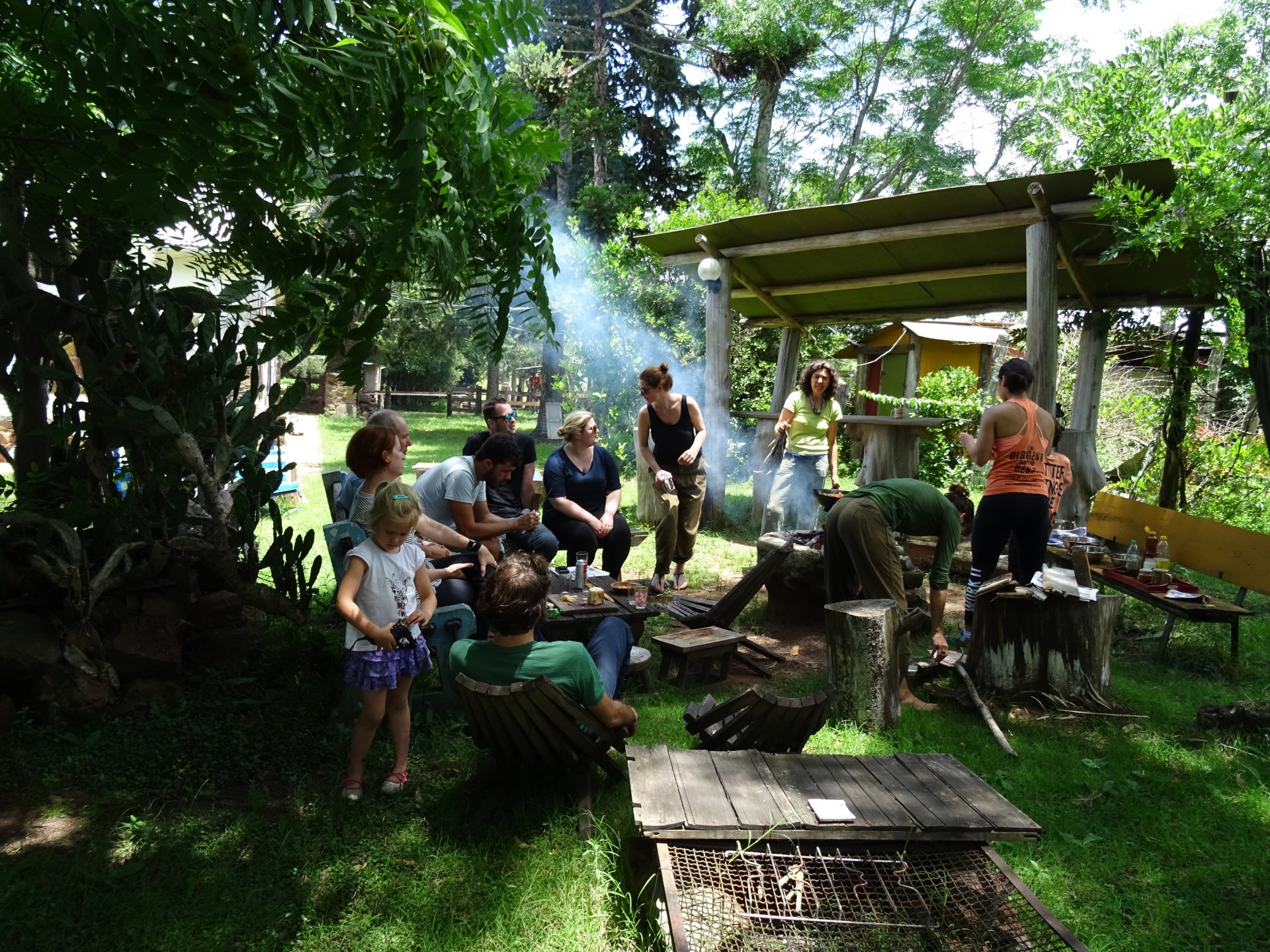
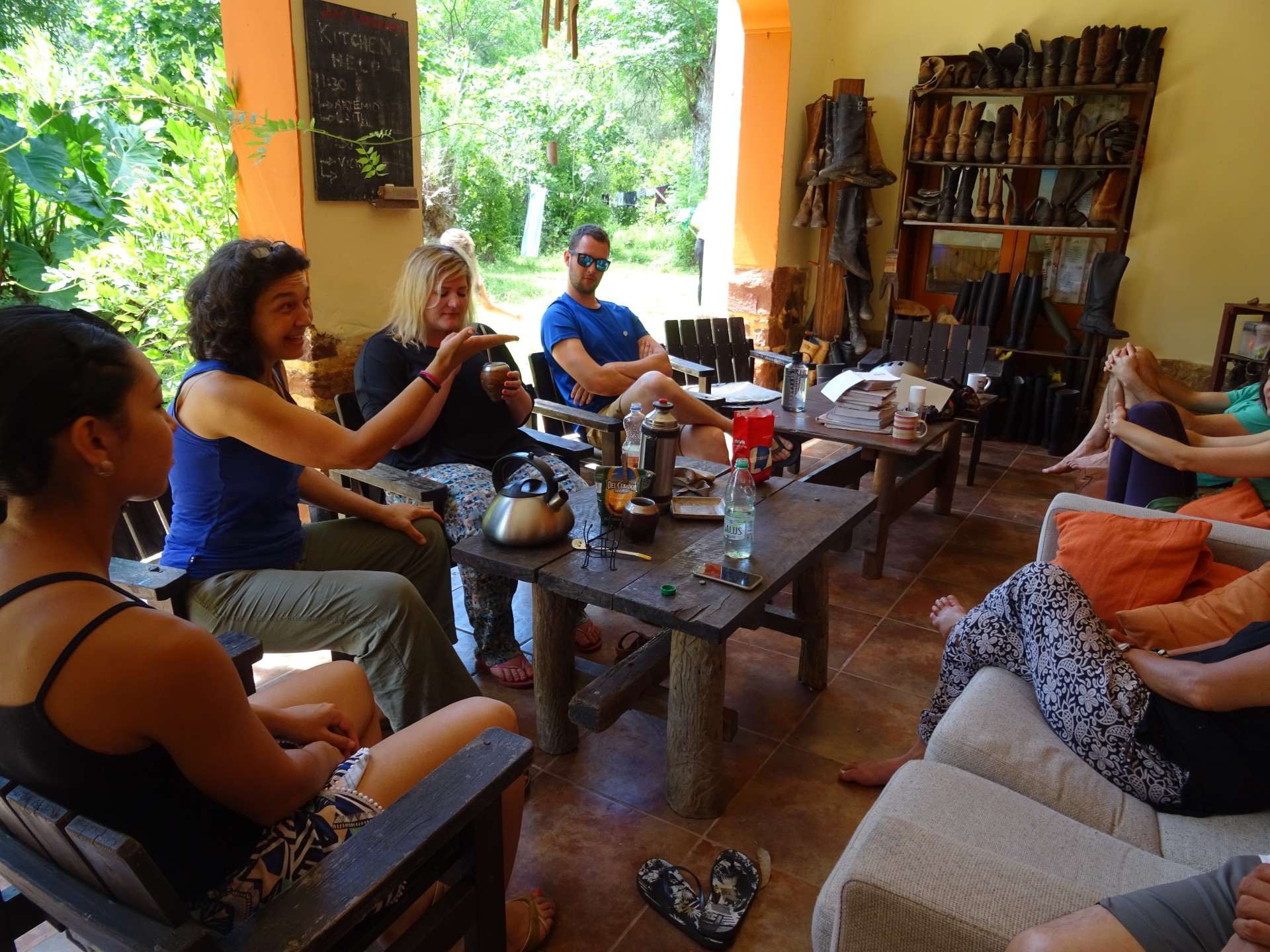
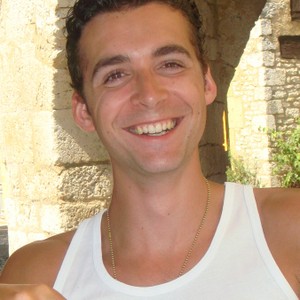



“Still unsure whether my horse was a boy or a girl” – I really must get around to having that birds and bees discussion with you some day…
It’s alright, I remember the first time and it wasn’t a pretty discussion.